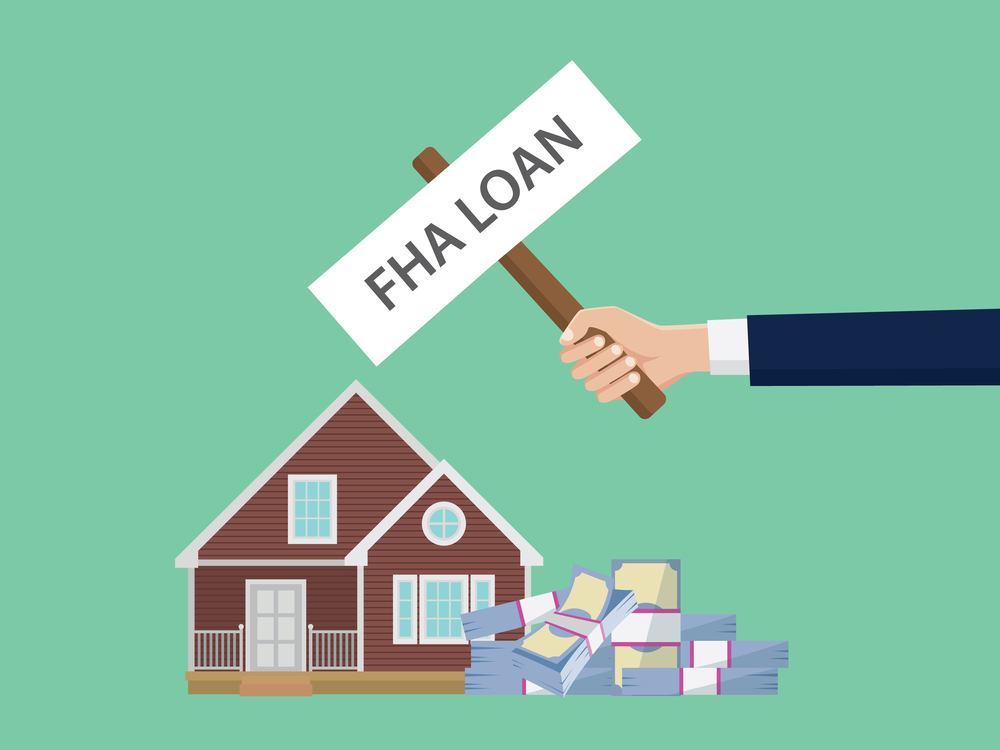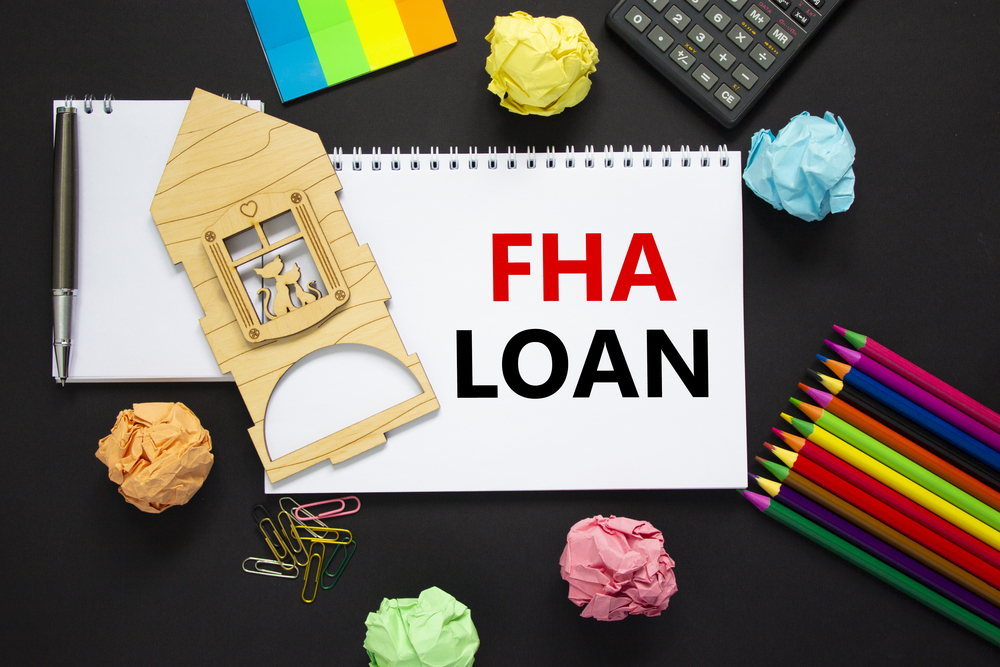Buying a home for the first time is one of the biggest decisions you’ll ever make — which is why it’s so important to learn about FHA loan down payment and closing costs.
After all, becoming a homeowner is a massive investment, and the journey to homeownership includes all kinds of twists and turns — to the point you begin wondering if your life has turned into some sort of M. Night Shyamalan movie.
In addition to finding a house — and, most likely, a real estate agent to work with — you also have to save up for a down payment and secure a loan to cover the rest of the sale price. To do that, you’ll have to weigh your options and find a lender that will work with you to land the home of your dreams.
If this is your first time buying a home, you might not be aware of how much money you need to save up to afford a house. At the same time, you might not be sure about the closing costs you’ll be on the hook for assuming you secure financing and make a deal with the seller.
Since this is the first time you’ll be going through the homebuying process, it’s only natural to be a bit worried and intimidated. Everyone who’s been in your shoes has felt that way.
When you’re buying your first home, you might think that you need to save up mountains of cash for a down payment, but that’s not the case. And while closing costs might seem difficult to wrap your head around, we’re here to help.
Keep reading to learn more about FHA loans, down payments, and closing costs for first-time homebuyers looking to take their slice of the American dream.
What is an FHA loan?
An FHA loan is a mortgage option designed to help folks with lower income or limited credit access achieve homeownership. Offered by the Federal Housing Administration (FHA), a government agency that sits under the Department of Housing and Urban Development (HUD), FHA loans are insured by the federal government. As a result, lenders are encouraged to offer financing to candidates with lower credit profiles who would not be approved for traditional mortgage loans.

FHA loans typically offer much lower down payment requirements. In some cases, you may be able to move into your first home while putting down as little as 3.5% of the purchase price. That’s why these kinds of loans are particularly popular for first-time homebuyers, as well as folks who might not qualify for conventional mortgages due to credit challenges.
In addition to these benefits, FHA loans also offer more flexible eligibility criteria, including higher debt-to-income ratios. At the same time, applicants can secure financing for a home even if they have lower credit scores than they’d need to secure a traditional loan.
How much do you need for an FHA loan down payment?
Most homebuyers who secure traditional loans have to put down anywhere between 10% and 20% of a home’s purchase price to be approved for a mortgage. As a financial tool designed for people with lesser financial means, FHA loans are much more flexible than traditional loans.
In some cases, you may be able to secure a home by putting as little as 3.5% down! On the other end of the spectrum, you might have to put down as much as 10%.
Either way, this lower down payment is a key feature that makes FHA loans attractive to many homebuyers, especially those who may have limited savings or face challenges in meeting the higher down payment demands of conventional loans.
What are FHA loan closing costs?
FHA loan closing costs include various fees and expenses incurred during the homebuying process beyond the down payment. Though FHA loans typically offer lower down payment requirements, borrowers still need to be aware of the other costs they’ll have to pay to close the loan.
Upfront mortgage insurance premium (UFMIP)
The UFMIP, which serves as an insurance premium to protect the lender in case of borrower default, is a significant FHA closing cost. This one-time payment often rolls into the loan amount. While the UFMIP rate is often determined by the loan-to-value ratio, it typically hovers around 1.75% of the base loan amount.
Annual mortgage insurance premium (MIP)
FHA loans often require borrowers to pay an annual MIP, which is an ongoing premium divided into monthly payments. The MIP amount correlates to the loan amount, loan-to-value ratio, and the term of the loan. Over time, it may be possible to remove this expense from your recurring cash outflows if you build up enough equity in the home (e.g., more than 20%).
Loan origination fees
Lenders may charge origination fees to cover loan processing costs. These fees vary on a vendor-by-vendor basis and often include charges for underwriting, document preparation, and application processing.
Appraisal fees
The FHA mandates that a local property appraiser comes by the house you’re considering buying to determine its market value. Borrowers typically cover these costs, which usually range between a couple hundred and a thousand dollars.
Title and escrow fees
Closing costs include charges for title searches, title insurance, and escrow services. These fees ensure a smooth and legally sound transfer of ownership. After all, the last thing you want is to buy a house only to find out the hard way that someone has a claim to the title of your house!
Home inspection fees
While not always required, FHA borrowers may decide to pay for a home inspection to assess a property’s condition. This fee is separate from the appraisal and is paid by the buyer. During the inspection, you may discover that the home you’re considering needs a lot of repairs, which can help you avoid buying a property that turns into a money pit.
Frequently asked questions: FHA loan down payment and closing costs
Now that you have a better idea about down payments and closing costs, let’s answer some of the questions first-time homebuyers have about FHA loans.
What credit score do I need to qualify for an FHA loan?
To qualify for an FHA loan, homebuyers typically need to have credit scores of at least 580 if they want to be eligible for a 3.5% down payment. However, borrowers with credit scores between 500 and 579 may still be able to secure an FHA loan. They just might need to come up with a 10% down payment to qualify.
Individual lenders may have different requirements, and they may consider other factors, including the applicant’s debt-to-income ratio and overall financial profile. Lenders offering FHA loans aim to provide more accessible homeownership opportunities for individuals with diverse financial backgrounds.
While it’s possible to secure a FHA loan with a lower credit score, borrowers with higher credit scores often receive more favorable terms and interest rates. As such, potential FHA loan applicants should check with lenders for the most up-to-date credit score requirements and work to improve their creditworthiness if needed.
How big does my FHA loan down payment have to be?
It depends on your credit score. If you have a score of at least 580, you can qualify for an FHA loan while putting as little as 3.5% down. In the event you’re thinking about buying a house that costs $300,000 and qualify for a 3.5% down payment, you would need to put down $10,500.
If you have a lower credit score but still qualify for an FHA loan with a 10% down payment, you would need to put down $30,000.
In either scenario, you would still be on the hook for closing costs, too.
What’s included in FHA loan closing costs?

FHA closing costs cover a variety of expenses, including the upfront mortgage insurance premium, which is a one-time payment borrowers make to protect the lender. Annual mortgage insurance premiums are ongoing payments that borrowers make every year.
Lenders may also charge origination fees, which cover the costs of processing the FHA loan application. At the same time, borrowers typically cover appraisal fees to assess the property’s value.
On top of this, borrowers are on the hook for title and escrow fees for services like title search and insurance. While not mandatory, some borrowers opt for home inspections, incurring additional fees.
Add it all up, and it’s important to realize that purchasing your first home involves much more than securing a down payment. When closing time comes, you will have to pay a lot of money at closing.
Can I get financing for FHA loan closing costs?
Yes, it’s possible to finance FHA loan closing costs. Borrowers can choose to roll some of the closing costs into the overall loan amount, reducing the upfront out-of-pocket expenses required at the time of closing. This is often referred to as seller concessions or seller-paid closing costs where the seller agrees to contribute towards the buyer’s closing costs, including those associated with the FHA loan.
Additionally, borrowers can explore lender credits, where the lender covers some closing costs in exchange for a higher interest rate. While financing closing costs can provide more flexibility, it’s essential for borrowers to carefully consider the long-term impact, as it may result in a slightly higher overall loan amount of interest payments over the life of the loan.
Conclusion
As you can see, buying a house is no walk in the park. Whether you’re thinking about applying for an FHA loan or a conventional mortgage, it helps to have an expert by your side to walk you through the process and suggest the best path forward for your unique circumstances.
Whatever you decide, here’s to your journey of homeownership. The Home Approach team is rooting for you every step of the way.
Disclaimer:
The content provided on this website is offered for educational purposes only. While we endeavor to provide accurate and up-to-date information, we make no representations or warranties of any kind, express or implied, about the completeness, accuracy, reliability, suitability, or availability of the content for any purpose. Visitors are advised to consult with qualified experts before making any financial decisions or taking any actions based on the information provided on this website.

